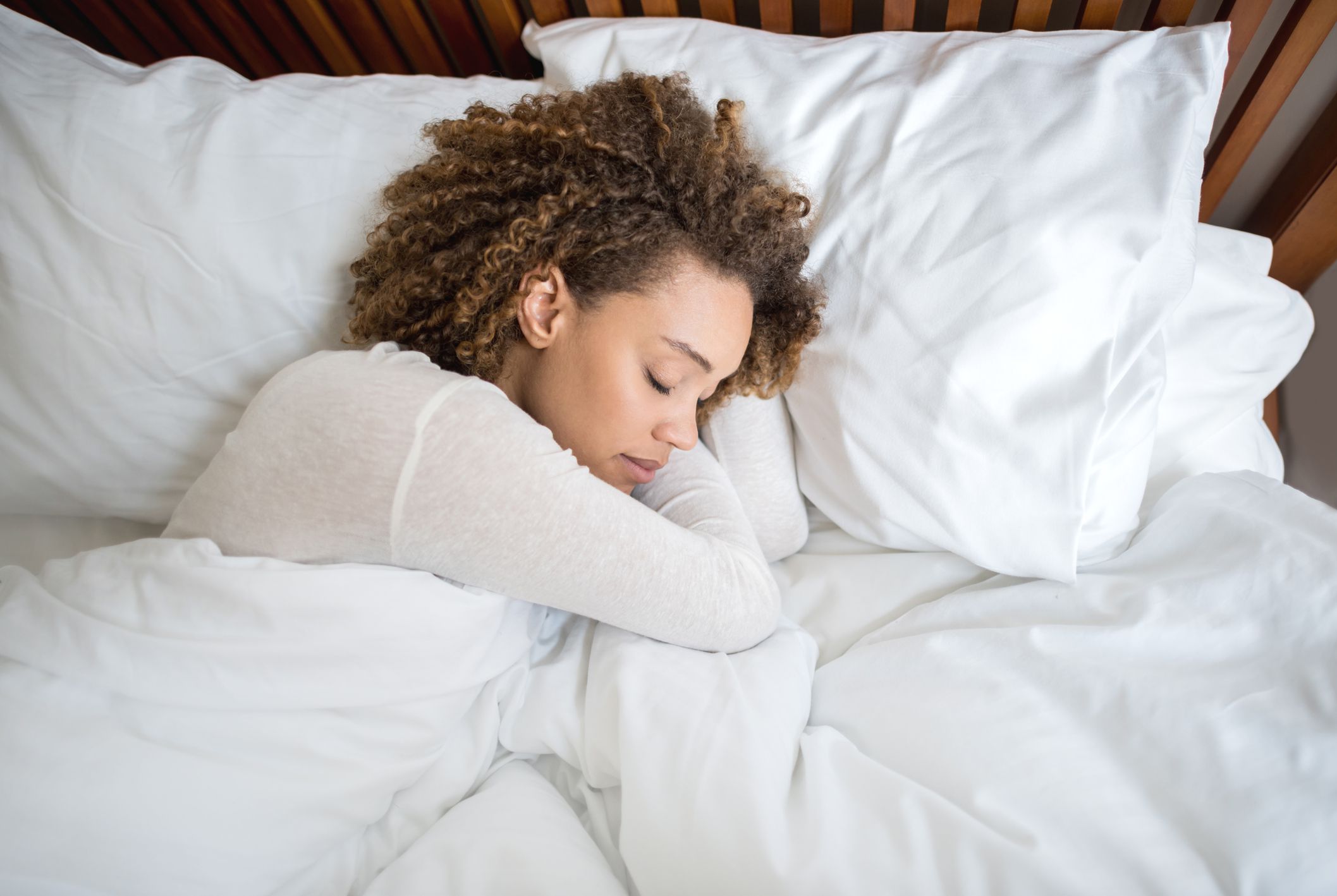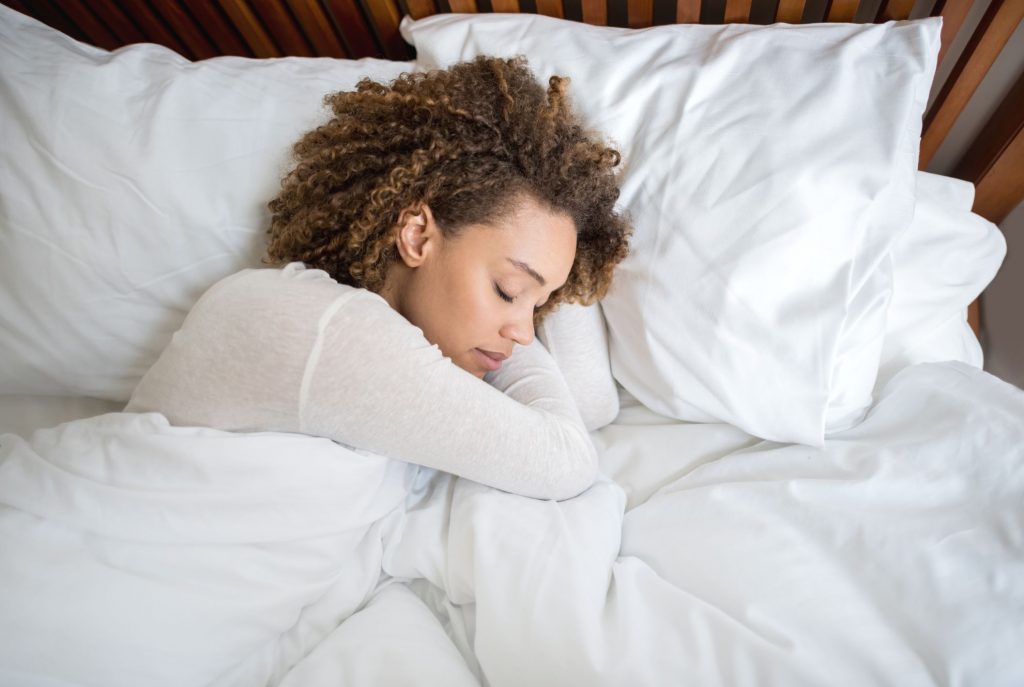You probably know most of the classic advice for getting a better night’s sleep: Keep your bedroom cool, avoid electronic screens before bed, and limit your caffeine intake in the second half of the day, for starters. But when even those tried-and-true tips simply don’t cut it, what else can you do to catch more Zzs?
From simple lifestyle tweaks to promising new drugs on the horizon, scientists have plenty of theories about what might help people struggling with insomnia, sleep apnea, and other disorders that keep millions of Americans from getting their recommended 7 to 8 hours of quality shut-eye a night. We looked at some of the latest research and asked experts to weigh in on what actually helps.

Leaving your bedroom door open
A small recent study published in the journal Indoor Air found that when people slept with their bedroom doors and windows closed, they had higher concentrations of carbon dioxide in their bedrooms—which indicates poor ventilation, say the study authors. People also woke more often throughout the night when their windows and doors were closed.
“Poor ventilation implies there could be a build-up of several chemicals in the room that are likely to impact health, focus, ability to relax, et cetera,” says study author Asit Mishra, PhD, a researcher at Eindhoven University of Technology in the Netherlands. “When we note high levels of CO2 in a bedroom, it is likely that the occupant would not have had as relaxing sleep as he or she may otherwise have had.” Excess carbon dioxide might also affect how refreshed people feel the next day, Mishra adds, although the study did not test for this.
If noise, security, or weather keeps you from opening your bedroom windows, Mishra says that leaving your bedroom door ajar is probably enough to improve ventilation. “Bedding can also gather quite a concentration of dust particles and possibly pollutant species,” he says, “so keeping them clean is also a useful step toward better sleep.”
A warm bath before bed
As you prepare for sleep, your core body temperature drops. You can help that process along, experts say, by warming up before bed with a hot bath.
“Body temperature can correlate with circadian rhythms, so as it starts to drop after the bath it can facilitate the onset of sleep,” says Jason Ong, PhD, associate professor of neurology and sleep medicine at Northwestern University’s Feinberg School of Medicine. “The key is to take it early enough—about 75 to 90 minutes before bed—so your temperature is already falling when you get into bed.”
Studies to date have focused on taking baths before bed, rather than showers. But some experts believe that taking a steamy, 20-minute shower would have similar effects. Even if not, says Ong, a hot shower can have a relaxing effect and may help you wind down before bed. (Just don’t go to bed with wet hair!)
Ditching your sleep tracker
Investing in an activity tracker that monitors sleep may seem like a smart move, but it also has the potential to backfire. “A lot of sleep problems are made worse when people become obsessed and want to analyze every detail,” says Ong.
Plus, he adds, consumer wearables aren’t terribly accurate when it comes to sleep. “They can give you a general sense of your sleep/wake patterns over time,” he says, “but they’re not great at telling the difference between when you’re laying in bed and when you’re actually asleep.”
At least one study backs up Ong’s views. A case report published in the Journal of Clinical Sleep Medicine described two patients who relied too heavily on what their sleep trackers told them, resulting in more stress, anxiety, and poorer sleep overall. In their study, the authors described “the perfectionist quest to achieve perfect sleep,” which they say is similar to other unhealthy preoccupations with “healthy” behaviors, such as orthorexia.
Tai chi
Exercise during the day has long been recommended as a helpful way to ensure sound sleep at night. But the benefits aren’t usually immediate. “If you suffer from chronic insomnia, it’s not like you’re going to tire yourself out with one workout and sleep better that night,” says Ong. “It’s more about establishing a regular exercise routine, which may help regulate your circadian rhythm and increase your drive for sleep over time.”
The type of exercise you choose isn’t as important, says Ong, as long as it’s something you can stick to regularly. But one routine you may want to try is tai chi—a traditional Chinese form of slow-moving meditation. In a recent Journal of Clinical Oncology study of breast-cancer patients, regular tai chi sessions were just as effective at relieving insomnia symptoms as cognitive behavioral therapy, considered the current gold-standard for insomnia treatment.
Amber-tinted glasses
Reducing screen time before bed is best—but sometimes life, work, or your favorite TV show makes that a difficult goal. Researchers at Columbia University think they may have a next-best solution: Wearing amber-tinted lenses can block some of the sleep-disrupting blue light emitted from TV screens, computers, and mobile devices, they say.
In a small study of 14 people with insomnia, participants got about 30 extra minutes of sleep during a week they wore wrap-around, amber-tinted glasses for two hours before bed—and they reported better quality and soundness of sleep—compared to a week they wore clear placebo glasses.

